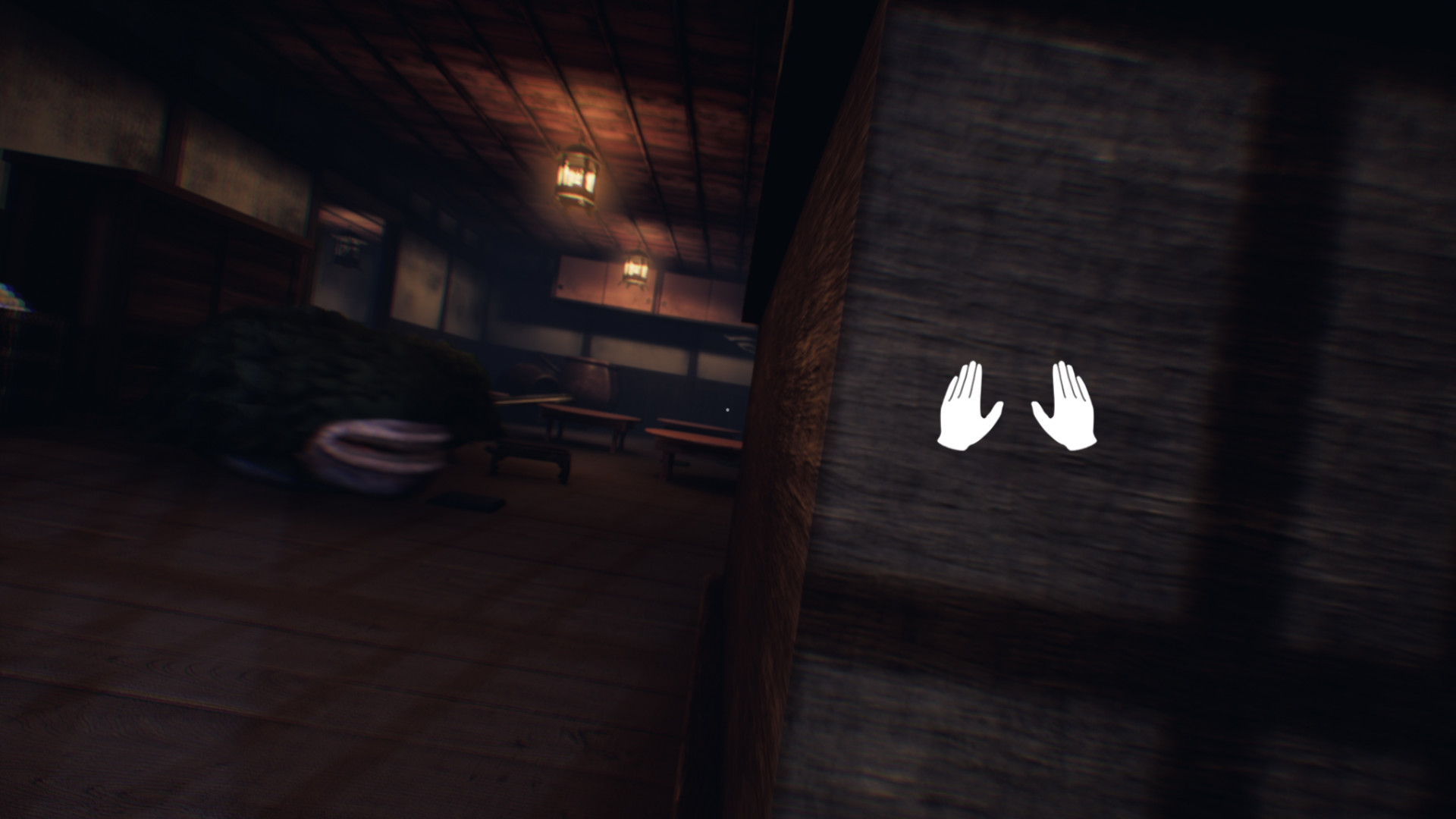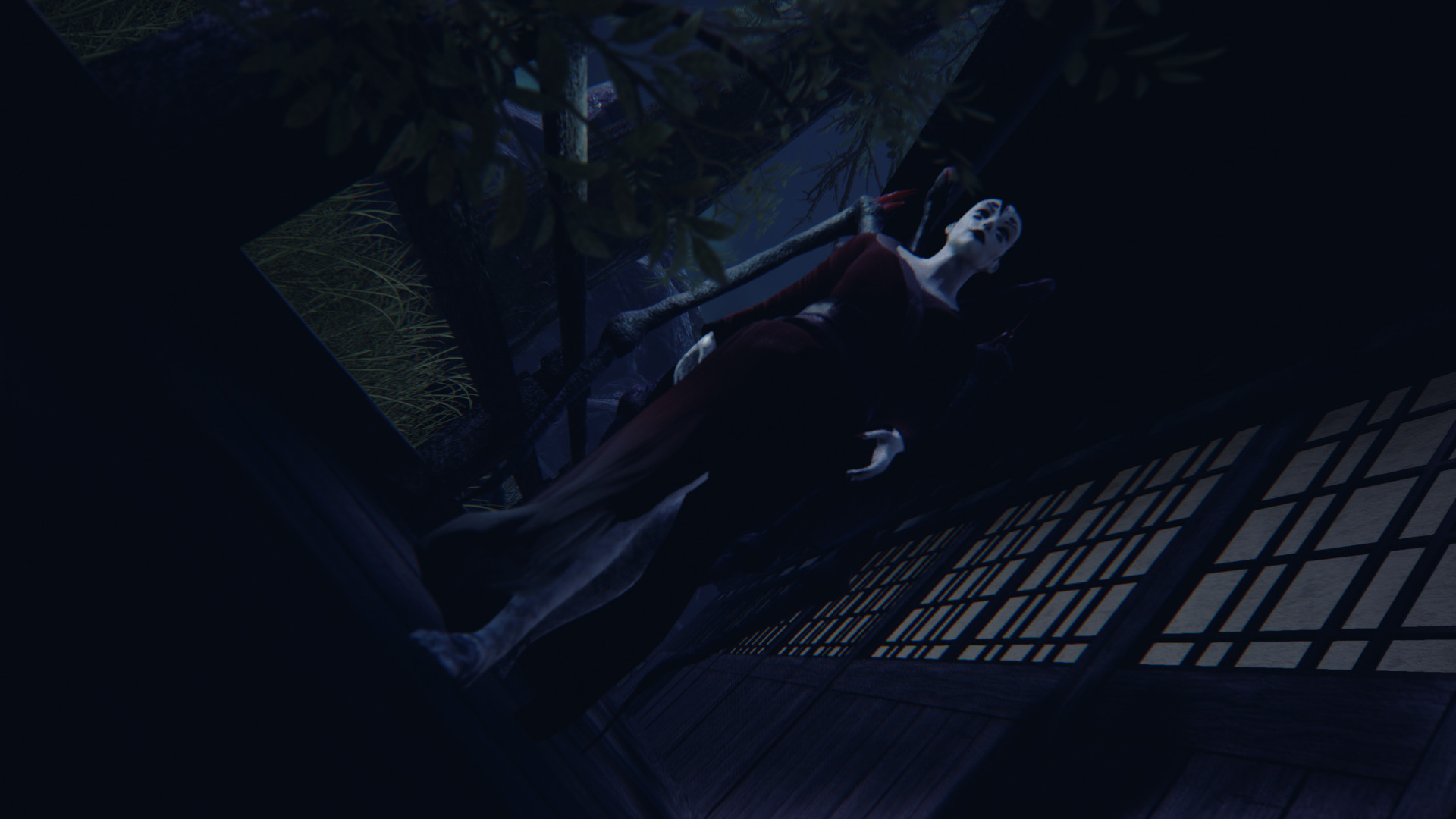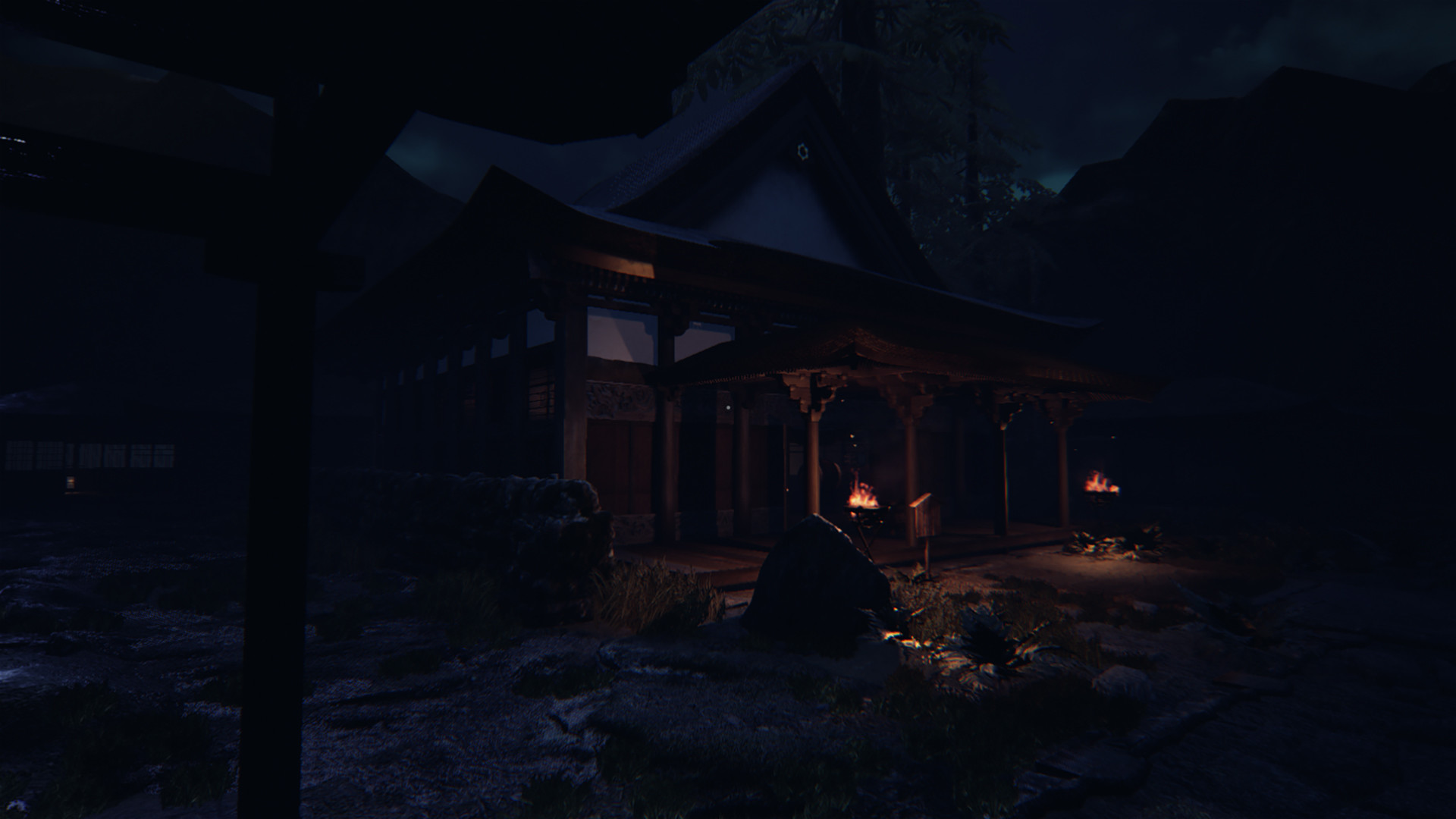For the better part of the last decade, indie developers have taken to the first person horror genre like moths to a flame. Many, of course, have found plenty of success with their offerings, but others have not been so lucky. Endflame’s Japanese folklore-inspired psychological horror experience is not without its merits, and at times, it does hint at greatness- but the sum of its parts is far from satisfactory, and the game as a whole is as brief as it is frustrating.
Set sometime, somewhere in Feudal Japan, Ikai sees you playing as Naoko, a young priestess who has to protect her shrine against invading forces of evil, from terrifying yokai to spirits to demons. The story is delivered largely through brief monologues or notes here and there, and though there are some attempts at connecting the events with Naoko’s past, by and large, the whole affair feels rather straightforward. That’s not necessarily a bad thing- it allows Ikai to get right into the thick of things. That does, however, mean that the story isn’t ever really there to get you invested in the experience. The poor localization, writing, and voice acting certainly don’t do the game any favours either.
“Endflame’s Japanese folklore-inspired psychological horror experience is not without its merits, and at times, it does hint at greatness- but the sum of its parts is far from satisfactory, and the game as a whole is as brief as it is frustrating.”
The setting, however, is a fairly interesting one, laden heavily with Japanese folklore and some of the imagery that goes hand-in-hand with that. The small shrine and the forest surrounding it that serve as the game’s setting feel like quaint, believable places with a surprising amount of detail that adds some authenticity to them. You can also find collectible notes scattered about the environments that teach you more about the yokai you face in the game, which is another neat touch.
The issue, however, is that in spite of being a very brief game at just 3-4 hours in length, Ikai often feels like a bit of a slog to play through. There are multiple reasons for that, though chief among them is the fact that you spend a bulk of the game going through repetitive and often the same environments as you move through the shrine and attempt to seal evil spirits. It doesn’t take long for a feeling of repetition to set in as you find yourself walking through environments that feel far too familiar.
It doesn’t help that the gameplay itself doesn’t do much to break up the monotony. Ikai has no combat, and is structured, for the most part, as a walking simulator. You walk through environments, investigate objects in your surroundings, do some puzzle solving every now and then, and try and find specific objects needed for specific tasks. That means there’s a lot of sifting through shelves and opening and going through drawers and what have you, which isn’t exactly riveting gameplay. It gets boring pretty quickly, and it doesn’t help that manually moving objects with the on-screen cursor using a controller feels quite clunky.
“There’s a lot of sifting through shelves and opening and going through drawers and what have you, which isn’t exactly riveting gameplay. It gets boring pretty quickly, and it doesn’t help that manually moving objects with the on-screen cursor using a controller feels quite clunky.”
The controls let the gameplay down in other ways as well. The normal walking speed is slow as molasses, but sprinting comes with a strangely exaggerated hopping animation that felt jarring to me. Meanwhile, crouching feels sluggish, and having to wrestle with the controls during tense chase sequences to avoid obstacles and manually pull doors open was never enjoyable. Ikai also places quite a lot of emphasis on drawing seals using a paintbrush to seal spirits, but you have to do that manually as well- it felt like a neat and novel gimmick at first, but having it in the game as an important mechanic is a bad idea. When you have to quickly draw a complicated seal to lock a door before a yokai that’s chasing you breaks in and do it all using the inherently inaccurate movement of an analog stick, tension can quickly turn into frustration.
Puzzles are another big focal point for Ikai, but they, too, are inconsistent at best. Though there are a few in there that were genuinely fun to figure out, most others disappointed one way or another. Many were too easy and straightforward, to the point of feeling like busywork, while others were on the complete opposite end of the spectrum- completely obtuse, with frustratingly vague hints and next to no cues to help you figure out what you’re supposed to do. It kills the pacing in a game that already struggles with it.
I’ve been quite critical of Ikai up until now, but I do want to give credit where its due- building atmosphere is a crucial part of any horror game, especially one that claims to rely on psychological horror like this one does. Fortunately, that’s one area where Ikai impresses in several ways- though mostly thanks to its audio design. From the creaking of wooden floorboards to sudden thumps on the floor above you, from the chilling rustling of leaves to manic whispers in your vicinity, Ikai’s audio design is always on point, and never failed to make my skin crawl.
“Ikai has major technical and visual problems.”
Sadly, the visuals don’t match up to the audio. Ikai has major technical and visual problems. Even when everything is working as it should, Ikai looks decent at best, but all so often, it just completely crumbles. The game’s got severe texture pop-in problems, especially when you load right into a save, to the point where often it can take dozens of seconds (if not longer) for huge, blatant swathes of textures to load in, leaving behind ugly blocks. Loading, too, can be surprisingly long- and I played this on an Xbox Series X.
All said and done, Ikai is a frustrating game. There’s a kernel of a good idea in there – psychological horror inspired by Japanese folklore is always interesting, while the atmosphere the game builds from the first second is also commendable – but it’s all outmatched to an almost overwhelming degree by the game’s many issues. The fact that it’s as short as it is and still manages to feel longer than it should be should tell you what you need to know about Ikai– that it’s a good idea that’s failed to evolve into a good game.
This game was reviewed on the Xbox Series X.
- About
- All
- among
- Animation
- Another
- AREA
- Atmosphere
- audio
- authenticity
- before
- BEST
- Bit
- Building
- chase
- chief
- claims
- controller
- credit
- critical
- Design
- detail
- developers
- down
- dozens
- During
- events
- experience
- Face
- Figure
- First
- fun
- game
- gameplay
- good
- having
- here
- HTTPS
- huge
- i
- idea
- important
- investigate
- issues
- IT
- Japan
- Japanese
- Kills
- large
- load
- Localization
- Long
- major
- Match
- more
- move
- movement
- Neat
- normal
- Offerings
- open
- opening
- Other
- play
- Playing
- Plenty
- Point
- poor
- protect
- Puzzle
- RE
- reasons
- review
- s
- Said
- Series
- set
- setting
- Short
- simulator
- Skin
- small
- So
- speed
- spend
- Story
- straightforward
- success
- Technical
- The
- Through
- touch
- Voice
- walking
- What
- WHO
- working
- writing
- X
- xbox
- Xbox Series X
- yourself
- youtube














